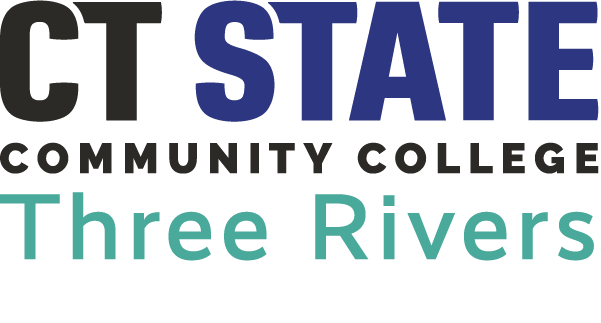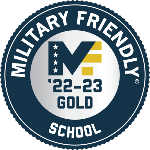ACADEMIC INTEGRITY
The effective operation of any organization is dependent on the honesty and goodwill of its members. In an organization devoted to the pursuit of knowledge, acting with integrity is essential to effective teaching and learning.
Furthermore, academic dishonesty erodes the legitimacy of every degree awarded by the College. To emphasize the importance of academic integrity, Three Rivers Community College adheres to the Student Code of Conduct and Discipline Policy, as provided by the Connecticut State Colleges and Universities (CSCU) – Board of Regents for Higher Education. Since collaboration is central to the learning community, Three Rivers wishes to emphasize that this policy is not intended to discourage collaboration when appropriate, approved, and disclosed.
Academic Misconduct
Academic misconduct, which includes, but is not limited to, plagiarism and all forms of cheating.
- Plagiarism is defined as the submission of work by a student for academic credit as one’s own work of authorship which contains work of another author without appropriate attribution.
- Cheating includes, but is not limited to: (i) use of any unauthorized assistance in taking quizzes, tests or examinations; (ii) use of sources beyond those authorized by the instructor in writing papers, preparing reports, solving problems or carrying out other assignments; (iii) the acquisition, without permission, of tests or other academic material belonging to a member of the University faculty or staff; and (iv) engaging in any other behavior specifically prohibited by a faculty member in the course syllabus.
Academic Dishonesty in a Service Learning, Practicum, Internship, Co-operative, or Fieldwork Environment
Conduct in community settings entered by a student as part of coursework must be equally characterized by integrity and honesty. Dishonest conduct proscribed under this policy includes but is not limited to (a) making false statements to community partners about the student’s skills, credentials and accomplishments, (b) making false statements to community partners or the instructor about progress in the work the student has agreed to do in the community, including supplying false documentation of work, (c) failing to abide by the rules and policies of the community partners that the student agreed to accept as a condition of entrance into the community setting, (d) failing to return materials belonging to the community partner or instructor (e) violating the ethical principles common to professional researchers, including violation of confidentiality or anonymity agreements with research subjects, deceiving or harming research subjects, or coercing participation in research.
When Academic Misconduct is Suspected *:
- The faculty member will meet with the student and discuss the incident in question. If the faculty member is not comfortable with meeting the student privately, the Academic Dean or designee may be invited to attend the meeting. A faculty member may instead refer a suspected incident of academic dishonesty to the Dean’s office.
- During the course of the meeting, the faculty member should explain why he or she suspects academic dishonesty.
- The student should be given a full opportunity to respond to the faculty member’s concerns.
-
- If, at the end of the meeting, the faculty member is convinced that no academic dishonesty has in fact occurred, the incident is considered resolved.
- If, at the end of the meeting, the faculty member is not certain that an incident of academic dishonesty has occurred, the faculty member may warn the student that the assignment is questionable and that future assignments will be scrutinized carefully. The incident is then considered resolved.
- If, at the end of the meeting, the faculty member feels strongly that an incidence of academic dishonesty has occurred, he or she may assign a grade of F or of 0 for the assignment in question, or the faculty member may require that the student complete a make-up assignment or a corrected revision in lieu of the questionable assignment. In a situation where the incident of academic dishonesty does not involve a gradable assignment, the faculty member may require the student to complete some other form of correction. (e.g. returning materials taken from a community partner).
- If, at the end of the meeting, the faculty member feels strongly that an incidence of academic dishonesty has occurred, he or she may assign a grade of F or of 0 for the assignment in question, or the faculty member may require that the student complete a make-up assignment or a corrected revision in lieu of the questionable assignment. In a situation where the incident of academic dishonesty does not involve a gradable assignment, the faculty member may require the student to complete some other form of correction. (e.g. returning materials taken from a community partner).
-
- ) If the student refuses to accept the penalty assigned in Step 4, the faculty member will report the student’s name, date, assignment type, type of academic dishonesty and any recommended disciplinary measures to the Academic Dean’s office for confidential tracking of repeat offenders. Furthermore, the faculty member will initiate the Discipline Procedures as defined by the Connecticut State Colleges and Universities (CSCU) – Board of Regents for Higher Education, in the Student Discipline Policy, section 3:1-10 by submitting a statement of possible violation with the Academic Dean.
* Please note: Withdrawal (“W”) will not be permitted if the student seeking to withdraw is suspected of having committed academic misconduct in the course from which withdrawal is sought. A withdrawal will be permitted when such suspicion is resolved by the faculty member without a conclusion the student engaged in academic misconduct in the course. The College reserves the right to substitute a final course grade for a previously recorded “W” when the final course grade reflects the judgment of a faculty member that the student committed academic misconduct in the course for which a “W” had been previously recorded.
Promoting Academic Integrity at Three Rivers
Faculty are encouraged to distribute and discuss this document in their classes.
Faculty are encouraged to include the following statement in their syllabi:
Academic integrity is essential to a useful education. Failure to act with academic integrity severely limits a person’s ability to succeed in the classroom and beyond. Furthermore, academic dishonesty erodes the legitimacy of every degree awarded by the College. In this class and in the course of your academic career, present only your own best work; clearly document the sources of the material you use from others; and act at all times with honor.
Faculty are encouraged to have students write and sign Honor Statements for assignments where they would be appropriate.
For Example:
“I have not given nor received any unauthorized assistance in completing this assignment.”
Or:
“I assert that the work presented in this assignment is my own original effort.”
These assertions are intended to confirm the understanding between faculty and students that academic integrity is essential and not to imply a lack of integrity on the part of any student. Faculty should specify the consequences of failure or refusal to sign and may consider alternative means of affirming academic integrity.




